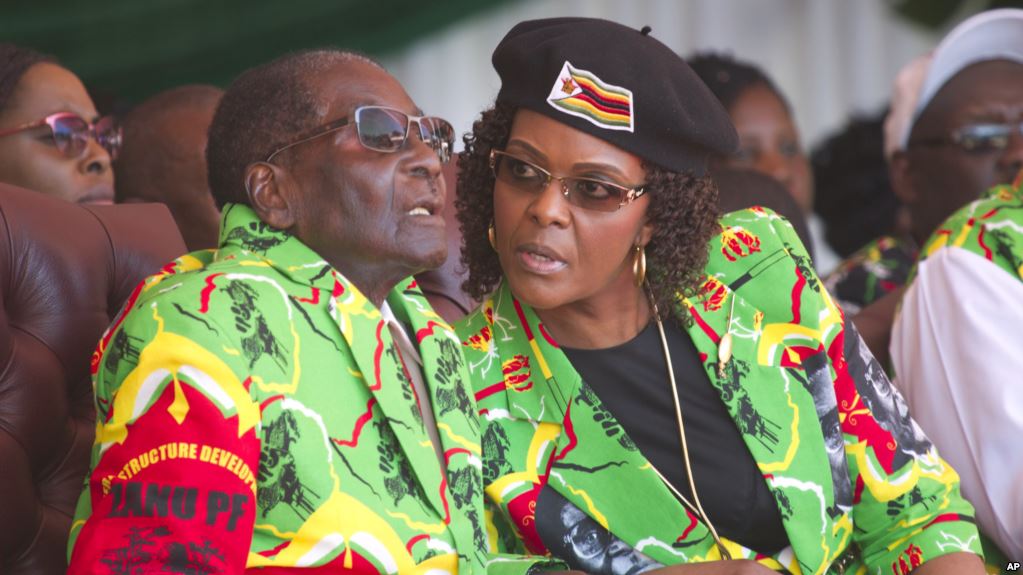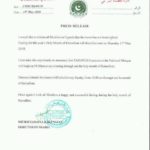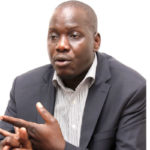Robert Mugabe’s efforts to cling to power appeared close to collapse as tens of thousands marched through Zimbabwe’s cities calling for his resignation, while the ruling party prepared to dismiss him.
The 93-year-old president is due to meet the army commanders who took power last week, a statement broadcast by the state-run TV channel said.
The face-to-face encounter is only the second since the military takeover five days ago and will take place as leaders of Zanu-PF convene to endorse a motion demanding that Mugabe resign as president and stripping the party leader of his post of first secretary. Parliament is expected to start impeachment proceedings next week.
Sources close to the military said the president had asked a Catholic priest and lifelong friend to act as an intermediary in talks with generals. Mugabe had previously rejected similar offers of mediation, suggesting that he was close to making a significant concession.
Few options are now open to the autocrat, who has ruled Zimbabwe through a mixture of coercion, bribery and revolutionary rhetoric for nearly four decades. Support in some branches of the security establishment – including the police – has evaporated and high-profile political supporters have been detained.
On Saturday the streets of Harare were filled with people chanting, singing and waving placards. Many embraced soldiers. The march had the approval of military authorities and will boost the international image of the generals who took control last week.
However, analysts said the celebrations were also evidence of a huge desire for democracy in Zimbabwe, not just the departure of the world’s oldest leader.
The presidential motorcade left Mugabe’s sprawling residence in Harare yesterday evening, booed and jeered by protesters who had gathered outside.
Piers Pigou, an expert with the International Crisis Group, said the march was “both an opportunity and a major challenge” for the military and the still dominant Zanu-PF, Mugabe’s political vehicle. “The language being used shows that people were out not just to support Zanu-PF and the army … What we have seen on the streets suggests that ordinary Zimbabweans want an alternative to the centralising, controlling narrative,” he said.
The military has said its takeover was to remove “criminals” close to the president, a reference to Grace Mugabe, the first lady, and her G40 faction.
Most observers believe the former vice-president Emmerson Mnangagwa is likely to take charge when Mugabe finally relinquishes power. Mnangagwa, 75, is a former intelligence chief and veteran Zanu-PF official responsible for the repression of opposition parties in elections between 2000 and 2008. He was fired by Mugabe two weeks ago.
Opposition leaders have called for the formation of an inclusive transitional government but risk being sidelined by the army and Zanu-PF. There are also concerns that the military will maintain significant influence in the future.
Since taking power, the military has arrested about a dozen senior officials and ministers loyal to Grace Mugabe, 52. She has not been seen since the takeover. Sources said she was in her husband’s Harare residence when he was detained and has not left. Zanu-PF branches in all 10 provinces called on Friday for Mugabe to be recalled as first secretary of the party.
The motions also called for Grace Mugabe to be stripped of her post chairing the Zanu-PF women’s league. She is a divisive figure who has outraged many with her extravagance, violent outbursts and political ambitions. Mugabe could theoretically continue as president, even if he were no longer leader of Zanu-PF, but this would be difficult in practice, party insiders said.
Relatives said he and Grace were “ready to die for what is correct” and had no intention of stepping down to legitimise the military coup. Speaking to Reuters from a secret location in South Africa, Patrick Zhuwao, Mugabe’s nephew, said on Saturday that his uncle had hardly slept since the military takeover, but his health was otherwise good.
The coup is thought to have been prompted in part by fears among the military and its allies in the ruling party of an imminent purge of Grace Mugabe’s rivals that would have allowed her to exercise greater power. Zimbabweans abroad demonstrated against their president yesterday. Hundreds in Britain gathered outside the embassy in London calling on Mugabe to step aside. Similar rallies were held in South Africa and Namibia.
Mugabe’s downfall is likely to send shockwaves across Africa, with Uganda’s Yoweri Museveni to the Democratic Republic of Congo’s Joseph Kabila, facing pressure to step aside.
The failure of regional powers to explicitly support the military intervention has angered many in Zimbabwe. South Africa’s president, Jacob Zuma, said yesterday the continent was committed to supporting ‘the people of Zimbabwe’.








